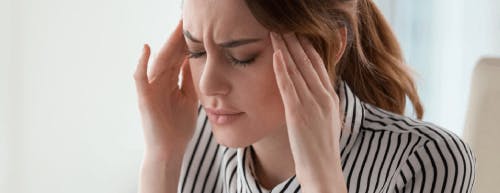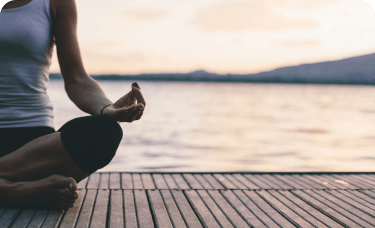No more counting sheep: Real-life tips for better sleep.
Sure, we could all get more sleep. But a restless night or not going to bed early enough just means a rough morning and maybe nodding off a little at the 3 p.m. meeting, right?
Not true. Sleep insufficiency has adverse effects and has been linked to motor vehicle and workplace accidents, and chronic diseases such as high blood pressure, depression, diabetes and obesity, according to the Centers for Disease Control and Prevention.
What’s more: Irregular sleep patterns may trigger both headaches or migraines in some. The good news? Poor sleep can be managed by small lifestyle changes, also known as sleep hygiene. We turned to an array of experts for their best tips on how to sleep better.
Sleep Tip #1: Be On Time
There was a reason your folks sent you to bed early when you were a kid. “I’ve heard time and again that the best way to get enough sleep is to stick to a sleep schedule, and this really is true,” says Bethany Ramos, editor-in-chief of Naturally Healthy Publications and a SheKnows parenting writer. “I’ve succumbed to my sad fate as a parent and normally go to bed early, a few hours after we put the kids to bed, at 9 p.m. I rarely ever have trouble falling asleep and wake fairly refreshed to start work at 6 a.m.”
Sleep Tip #2: Chill Out
Ultramarathoner and author Dean Karnazes often spends weeks on the road, crossing multiple time zones. His top good-night’s-sleep tip? “I’ve found that keeping the temperature slightly below 70 degrees Fahrenheit is the most conducive for getting a comfy night’s sleep,” he says. “Any cooler than that can be too chilly; any warmer tends to make things uncomfortable and lead to restlessness and frequent stirring.”
Sleep Tip #3 Drown out the sound
Another of Karnazes’ tips? Earplugs. “I think many people fail to realize how disruptive to sleep noise can be, even very small background noises,” he says. “Try sleeping with earplugs. You’ll be amazed at how much deeper you sleep when all noise is removed.” Karnazes also wears a sleep mask.
Sleep Tip #4 Cut down on the caffeine
What you ingest before bedtime can affect your sleep patterns. “Caffeine has a half-life of six hours, which means that six hours after your last sip, half the caffeine is still in your body,” says Dr. James B. Maas, author of Sleep For Success! (with co-author Rebecca Robbins). “And don’t forget that chocolate and many energy drinks and sodas contain caffeine as well.” Better to come up with other activities to de-stress, says Maas: “Listen to some soothing music, try meditation, or just write your worries on a piece of paper to get them out of your head.”








